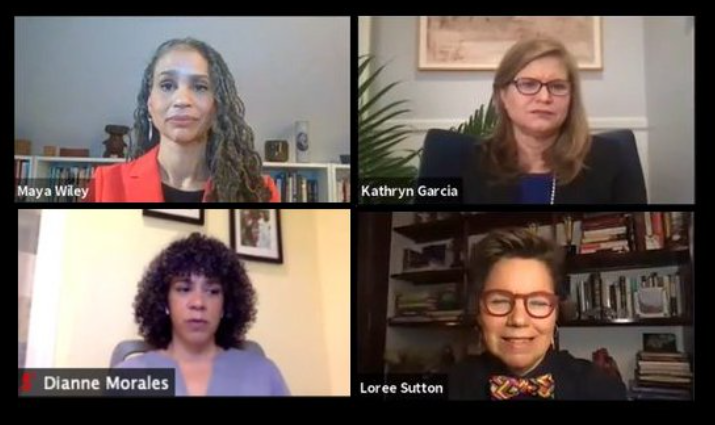The DOJ Dropped Their Lawsuit But SFFA Picked It Up
Words by Brahmjot Kaur
Cover Photo courtesy of SFFA Website
On February 25, less than one month after the Department of Justice (DOJ) dropped their discrimination lawsuit against Yale University, Students for Fair Admissions (SFFA) announced they now intend to file a new discrimination lawsuit against Yale on the same grounds. Students for Fair Admissions, a nonprofit membership group, who, according to their website, “believe that racial classifications and preferences in college admissions are unfair, unnecessary, and unconstitutional,” announced they will be filing a new lawsuit against the Ivy League university. In a press release, the president of SFFA, Edward Blum, said, “It is disappointing that the Department of Justice withdrew from this important lawsuit, which had exposed Yale’s illegal use of quotas to achieve racial and ethnic proportionality… Students for Fair Admissions intends to file a new lawsuit against Yale in the coming days.”
SFFA Supporters Photo courtesy of Kayana Szymczak from the New York Times
On February 3, the Justice Department announced it would be dropping a high-profile discrimination lawsuit filed against Yale University. The lawsuit, led by then-Attorney General William Barr, alleged that White and Asian American students were being discriminated against due to their race and stated that they endured stricter admissions standards than their black, Hispanic, and Indigenous counterparts. The lawsuit, filed on October 8, 2020, stated, “The complaint alleges that Yale discriminated against applicants to Yale College on the grounds of race and national origin and that Yale’s discrimination imposes undue and unlawful penalties on racially-disfavored applicants, including in particular most Asian and White applicants.” The suit argued that Yale violated Title VI of the 1965 Civil Rights Act, which they said was, “a cornerstone civil-rights law that prohibits discrimination on the basis of race, color, or national origin in programs and activities that receive federal financial assistance.” The lawsuit, led by then-Attorney General William Barr, alleged that White and Asian American students were being discriminated against due to their race and believed they endured stricter admissions standards than their black, Hispanic, and Indigenous counterparts.” However, the DOJ, now under the Biden Administration, dropped the case, saying, “The department has dismissed its lawsuit in light of all available facts, circumstances, and legal developments, including the November 2020 decision by the US Court of Appeals for the First Circuit rejecting a challenge to Harvard University's consideration of race in its admissions practices.”
Some were disappointed by the decision to drop the case, such as President of the Asian American Coalition for Education, Yukong Zhao, who still supports the lawsuit. He told insidehighered, “I am totally shocked by the Biden DOJ’s hasty decision to drop the Yale lawsuit, only eight days after President Biden signed an executive order claiming to combat anti-Asian discrimination … This is purely ugly identity politics that further divides our nation.” However, Niyati Shah, the director of litigation at Asian Americans Advancing Justice (AAJC), praised the decision. In a press release published by the organization, Shah said she believes Asian Americans were being used to divide people of color and even stated that statistics prove that, “Asian Americans overwhelmingly support affirmative action and understand that race-conscious admissions are necessary for educational equity and diversity in higher education.”
SFFA previously filed a lawsuit against Harvard University in 2014 over its admissions system on the same grounds. In 2019, a U.S. district court judge ruled that Harvard did not discriminate against Asian-American applicants. In a press release from the Office of the General Counsel, the federal judge presiding over the case said that while Harvard’s admissions approach was not perfect, she believed, “the court will not dismantle a very fine admissions program that passes constitutional muster, solely because it could do better”. This year, SFFA has petitioned the Supreme Court to review the lower court’s decision in favor of Harvard University.
The conversation surrounding affirmative action continues to further the discussion of access to higher education. While the college enrollments and degrees attained have continued to rise significantly, black and Hispanic students are continuously underrepresented at colleges and universities. City College’s president, Vincent Boudreau, previously said, “At City College, I fully support the policies and practices that we have implemented to foster non-discrimination, affirmative action, and diversity and inclusion in our workplace and campus community.” CUNY also echoes the same beliefs. According to the New York Times, affirmative action does increase the number of black and Hispanic students in higher education, but the majority of the underrepresentation usually “stems from equity issues that begin earlier.” The Office for Civil Rights at the United States Department of Education released a letter detailing how the inequities in elementary schools and secondary schools in the U.S. Elementary schools and secondary schools that serve a predominantly black or Hispanic population are less likely to have advanced courses, adequate facilities, and experienced faculty. However, it is important to note that affirmative action has still increased the number of black and Hispanic students in higher education.
Cases in favor and against affirmative action will carry on. Students for Fair Admission vow to appeal their cases to the Supreme Court. Until then, we will continue to observe the conversation around affirmative action shift during more contemporary events. Terry Hartler, Senior Vice-President for Government Relations and Public Affairs for the American Council on Education, explained the DOJ’s decision well when he told the New York Times, “[The DOJ is] moving very quickly to reverse a host of Trump administration policies that are inconsistent with the Biden administration’s worldview.”





